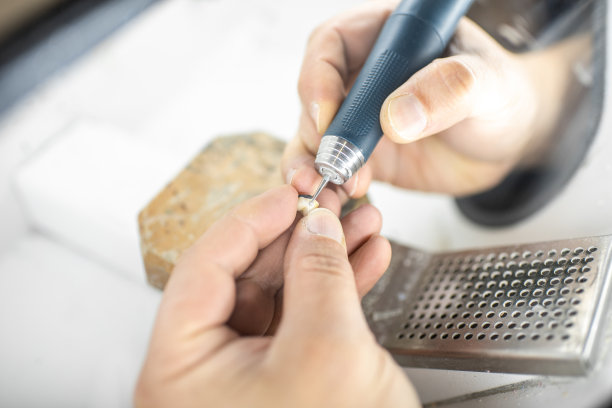Summary: Dental implants are a transformative solution for those with missing teeth, providing both aesthetic and functional benefits. However, ensuring a successful dental implant procedure requires thorough planning and adherence to essential precautions. This article explores four critical aspects: patient assessment and preparation, choosing the right dental professional, post-operative care, and lifestyle adjustments. By focusing on these areas, patients can maximize the chances of a successful outcome and enjoy long-lasting results from their implants. This comprehensive guide aims to provide patients with valuable insights into the best practices for achieving optimal dental implant success.
1. Patient Assessment and Preparation

Before undergoing a dental implant procedure, a thorough assessment of the patients oral health is vital. This includes a complete dental examination, including X-rays and possibly Cone Beam CT scans, to evaluate the quality and quantity of jawbone available for the implant. Proper diagnostic tools allow the dentist to determine if any preliminary treatments, such as bone grafting, are necessary to ensure a secure foundation for the implant.
Patient history plays a crucial role in the assessment phase. Dentists must consider any underlying health conditions patients may have, such as diabetes or heart disease, which can affect the healing process. Additionally, discussing any medications that the patient is taking is essential, as certain drugs can interfere with the bodys ability to heal or the implants integration.
Lastly, educating patients about the procedure and what to expect can help reduce anxiety and encourage compliance with pre-operative instructions. Patients should understand the steps involved and the importance of following all guidelines prior to the surgery for optimal results.
2. Choosing the Right Dental Professional
The success of a dental implant largely depends on the skill and experience of the dental professional performing the procedure. Its essential for patients to research potential dentists, ensuring they are credentialed and have specialized training in implant dentistry. Reading reviews, seeking recommendations, and reviewing before-and-after case studies can help patients feel more confident in their choice.
Moreover, the consultation process can provide insight into the dentists communication style and approach to patient care. Patients should feel comfortable asking questions and addressing any concerns about the procedure. A dentist who takes the time to discuss the procedure thoroughly and tailor the treatment plan to the patient’s specific needs demonstrates a commitment to successful outcomes.
In addition, modern implant techniques and technology should play a role in the decision-making process. Dentists utilizing advanced tools, such as digital scanning and guided implant placement, can improve the accuracy and predictability of the procedure, leading to better results.
3. Post-operative Care is Essential
Following a dental implant procedure, adhering to post-operative care instructions is crucial for ensuring healing and the longevity of the implant. Patients should receive a detailed guideline from their dental professional on what to expect and how to care for the surgical site. This often includes recommendations regarding diet, oral hygiene, and activity levels during recovery.
Maintaining proper oral hygiene is especially critical after surgery. Patients should gently brush their teeth and the implant site as recommended, using an antibacterial mouth rinse to minimize the risk of infection. Regular follow-up appointments should be scheduled to monitor the healing process, allowing the dentist to address any concerns promptly.
Patients should also be mindful of their nutrition during recovery. A balanced diet rich in vitamins and minerals can support the body’s healing process. Staying hydrated and avoiding hard or chewy foods can also help prevent strain on the healing implant site.
4. Lifestyle Adjustments for Lasting Results
Adopting certain lifestyle adjustments can significantly contribute to the longevity of dental implants. One of the most important changes involves quitting smoking, as tobacco use can hinder healing and increase the likelihood of implant failure. Encouraging a smoke-free lifestyle can yield better outcomes and promote overall oral health.
In addition, patients should prioritize regular dental check-ups and oral hygiene practices. Maintaining routine cleanings and examinations can help identify and resolve issues before they escalate, ensuring the implants remain in good condition. Moreover, regular assessments allow for early intervention if any adjustments to the implants are needed.
Finally, managing stress through relaxation techniques and a healthy lifestyle can impact healing and overall health. Patients should consider incorporating moderate exercise, proper sleep routines, and stress management strategies to support their body in maintaining healthy implants.
Summary:
The key to a successful dental implant procedure lies in comprehensive patient assessment, selecting a qualified dental professional, and strictly adhering to post-operative and lifestyle guidelines. By focusing on these critical factors, patients can ensure not only the success of the procedure but also the longevity of their new implants.
This article is compiled by Vickong Dental and the content is for reference only.
Vickong Dental
Vickong Dental is a large medical group established in Hong Kong in 2008 by professors from well-known medical universities in Guangdong and Hong Kong, as well as medical doctors from key national '985' universities (including Master's supervisors and senior professors). The chain of branches brings together expert dentists with PhDs and Master's degrees from Hong Kong and Mainland China, committed to providing high-quality dental treatment.
"Vickong Dental Practices the University Motto of 'Healing and Serving Society,' with a Stable Operation for Sixteen Years. It Has Been honored with Hong Kong Enterprise Leaders's Choice,' and is a Global Trusted Implant Center for the Nobel Implant System. Recommended by Hong Kong Metro Broadcast and Guangdong Television, it Serves Customers from Over Thirty Countries and Regions, Gaining the Trust and Favor of Citizens from the Guangdong-Hong Kong-Macau Greater Bay Area and Surrounding Cities.

Thousands of customers' unanimous praise
The most recognized and highly recommended dental service by customers in the Guangdong-Hong Kong-Macau Greater Bay Area
We Ensure You Receive Detailed Care and Attention Here
Hong Kong standards, Shenzhen prices, Your Trusted English-speaking dentists

Vickong Dental Medical-Grade Instrument Disinfection Process
Vickong Dental Medical-Grade Instrument Disinfection Process

Vickong Dental Chain: A Warm and Comfortable Environment for Treatment






Appointment Hours

Q&A
Why choose Vickong Dental?
Vickong Dental practices the university motto 「Medicine to Benefit Society」, with each branch bringing together highly qualified dentists with doctoral and master’s degrees from Hong Kong and the Mainland, and has maintained seventeen years of steady operation。Recipient of 「2024 Hong Kong Enterprise Leaders Brand」, 「2025 Hong Kong Enterprise Leaders Brand」, a Nobel Biocare Global Trusted Implant Center, and a brand recommended by Metro Radio Hong Kong and Guangdong TV。
To date, we have served customers from more than thirty countries and regions,earning exceptionally high word-of-mouth recognition and trusted recommendations from residents across the Guangdong-Hong Kong-Macao Greater Bay Area and surrounding cities
We have eight major branches in Zhuhai、Shenzhen,and a consultation and service assurance center in Hong Kong,so you can book a free consultation at any time for any questions,which is very reassuring.
If I do not accept the quotation after the CT scan, will I be charged??
No! As long as the actual treatment has not started, you will not be charged any fees.
Will there be any additional charges during the treatment process?
No, there won’t be any additional charges. Before treatment begins, we will clearly explain the treatment plan and its corresponding fees. Only after the patient agrees and signs the consent form will we proceed with the dental service.
Can I pay in Hong Kong dollars?
Yes. Vickong Dental accepts payment in Hong Kong dollars. The amount will be converted based on the exchange rate of the day, and the applicable rate will be clearly communicated to you in advance.
Can I reschedule my appointment at any time?
Yes. Please contact us via **WeChat** or **WhatsApp** as early as possible, providing your original appointment time and details, along with your preferred new date and time slot for rescheduling.













